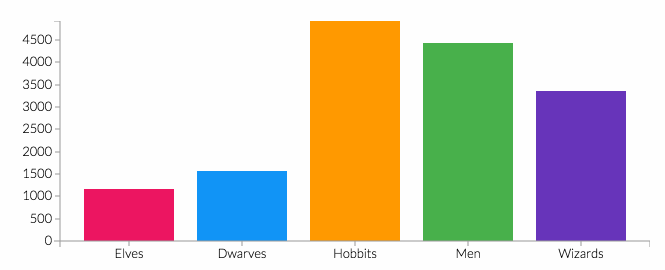ORIENTASI KHODAM DALAM PENDIDIKAN PESANTREN
DOI:
https://doi.org/10.33853/istighna.v3i2.219Keywords:
Santri, KhodamAbstract
The meaning of khodam in pesantren is another name for the help of the selfless Kiai, be it khadam bi al-tabarruk, bi al-Maqsud, which not everyone can become a Kiai khodam, they also help the Kiai in carrying out the duties of the pesantren and the housekeeping and economy for the sake of achieving a goal, namely getting blessings or benefits from a Kiai or teacher, although there are some khodam from outsiders who have never studied at the pesantren, khodam is an alternative for students who want to study at the pesantren but do not have sufficient costs to live it, so that by becoming a khodam, they can get an education with the help of their education costs by the Kiai. The view of the pesantren community regarding the existence of khodam basically, they are very helpful in the success of the educational process, with their existence, the students, ustad and even the general public find it easier to communicate with the caregiver or Kiai, Kiai sees khodam not as a marginalized santri, even, on the other hand, the khodam is already considered part of the pesantren's extended family so there is no difference between regular santri and santri who concurrently become this khodam.
Downloads
References
A Rafiq, dkk, Pemberdayaan Pesantren Menuju Kemandirian dan Profesionalisme dengan Metode
Abu Ja’far Ahmad Al-Thahawi, Musykilah Al-Atsar, (Maktabah Syamilah: Mauqi’ Jami’ Al-Hadist, tt), Juz III.
Ahmad Mujib El-Shirazy dan Fahmi Arif El-Muniry, Landasan Etika Belajar Santri, (Pustaka Fajar, Jakarta Selatan, 2007.
Al-Imam al-Mawardi, Adabud Dunya wa Din, (al-Hidayah, Surabaya, tt).
Al-Zarnuji, Ta‟līm Al-Muta‟allim fī Tharīq al-Ta‟allum, (Surabaya: Maktabah Shahabat Ilmu, tt).
Al-Zarnujy, Ta’limul Muta’allim, (Pondok Pesantren Assalafi, Kediri, tt).
Clifford Geertz, Agama Jawa, Abangan, Santri, Priyai Dalam Kebudayaan Jawa, Terj, Aswab
Dalam Pesantren di Madura). AL ULUM: Jurnal Penelitian dan Pemikiran Keislaman 4.1 (2017).
Daurah Kebudayaan, (Yogyakarta, LKiS Pelangi Aksara, 2005).
Ditpekanpontren Ditjen Kelambagaan Agama Islam Departemen Agama, 2003).
Gerungan Dipl, Psikologi Sosial,(Bandung: Refika Aditama, 2010).
Hadi Wahyono, and Sholihul Anshori, Strategi Membangun Motivasi Ekstrinsik Santri Dalam Meningkatkan Kualitas Baca Kitab Kuning, (Studi Kasus di Pondok Putra Tebuireng Jombang)." al ta'dib 7.2 (2017).
Mahasin dan Bur Rasuanto, (Depok: Komunitas Bambu, 2014).
Marti Van Brunessen, Kitab Kuning, Pesantren Dan Tarekat : Tradisi-Tradisi Islam Di Indonesia,
Mohammad Takdir Ilahi,. Kiai: Figur Elite Pesantren, IBDA: Jurnal Kajian Islam dan Budaya 12.2 (2014).
Muhammad Bin Ali Al-Syaukany, Fath Al-Qodir, (Maktabah Syamilah: TT), Juz IV.
Mujamil Qomar, Pesantren dari Transformasi Metodologi Menuju Demokratisasi Institusi (Jakarta: Erlangga, 1996).
Pengantar Abdur Rahaman wahid Mizan Bandung cet.3 rabiul awal 1420/Juli 1999
Sarlito Wirawan Sarwono, Psikologi Sosial, (Jakarta, Balai Pustaka:2002).
Supandi, Dinamika Sosio-Kultural Keagamaan Masyarakat Madura (Kiprah dan Eksistensi Khodam
Tim Dirjen Kelembagaan Agama Islam, Pola Pengembangan Pondok Pesantren, (Jakarta:
Zamakhsyari Dhofier, Tradisi Pesantren Studi Tentang Pandangan Hidup, (Jakarta: LP3ES, 1985).
Downloads
Published
How to Cite
Issue
Section
License
Copyright (c) 2020 Akhmad Said

This work is licensed under a Creative Commons Attribution-ShareAlike 4.0 International License.
Copyright Notice
Authors hold and retain copyright and grant the journal right of first publication with the work simultaneously licensed under a http://creativecommons.org/licenses/by-sa/4.0that allows others to share the work with an acknowledgment of the work's authorship and initial publication in this journal.

This work is licensed under a Creative Commons Attribution-ShareAlike 4.0 International License.
















